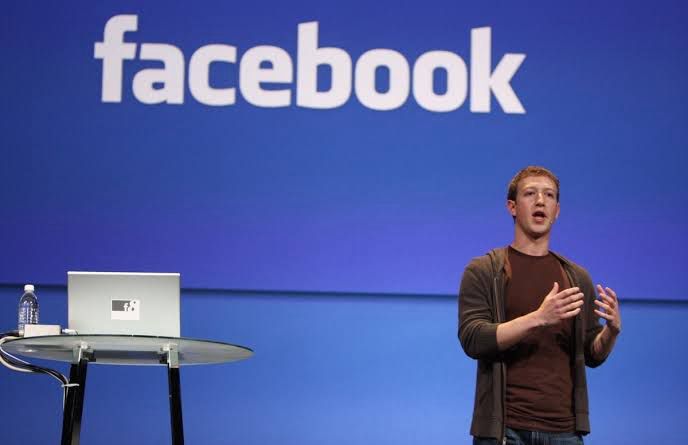
Facebook – Despite newer competitors, Facebook secured 598 million downloads, showcasing its enduring popularity.
Facebook continues to thrive despite fierce competition from newer platforms like TikTok and Instagram. With 598 million downloads in 2024, it has demonstrated remarkable adaptability and innovation. From expanding its features to acquiring competitors, Facebook maintains a broad and diverse user base across generations. Its global reach, advanced advertising tools, and robust community-building capabilities make it a dominant force in social media, securing its continued relevance in an evolvin
✨ Raghav Jain

Facebook – Despite Newer Competitors, Facebook Secured 598 Million Downloads, Showcasing Its Enduring Popularity
In an era of constant digital evolution, the social media landscape has seen an influx of new platforms, each promising to be the next big thing. TikTok, Instagram Reels, Snapchat, Threads, and BeReal have emerged, capturing the attention of younger audiences and reshaping the way people interact online. However, amid this fierce competition, Facebook—the platform that arguably started the social media revolution—continues to hold its ground. In 2024, Facebook recorded an astonishing 598 million downloads globally, proving that it remains a powerhouse in the social networking realm.
This article delves deep into how Facebook has managed to maintain its relevance, the strategies it employed, and what this figure signifies for its future.
The Context: A Crowded Social Media Market
The last decade has witnessed the rise of numerous social media platforms. TikTok popularized short-form video content, while Snapchat introduced ephemeral messaging. Instagram, originally a photo-sharing app, evolved to include videos, Stories, and now Threads. BeReal tapped into users' desire for authenticity, urging them to post unfiltered photos daily.
Given this ever-expanding array of choices, one might expect Facebook to struggle to keep up. After all, younger generations often view it as a "platform for older people." Nevertheless, the numbers tell a different story. With 598 million downloads in a single year, Facebook has demonstrated an extraordinary ability to adapt, evolve, and remain a cornerstone of digital interaction.
How Facebook Secured 598 Million Downloads
1. Continuous Innovation and Feature Expansion
Facebook has consistently introduced new features to enhance user engagement. It launched Facebook Marketplace to tap into e-commerce, Facebook Watch for video content, Facebook Dating for online romance, and more recently, Reels to rival TikTok. Each new feature broadens its appeal, encouraging both new downloads and continued usage.
Moreover, Facebook integrates augmented reality (AR) filters, live streaming options, and improved privacy features, ensuring it remains competitive and technologically advanced.
2. Strategic Acquisitions
Facebook’s parent company, Meta, has employed a strategy of acquiring potential competitors before they can become threats. Its acquisitions of Instagram and WhatsApp have created an interconnected ecosystem. Although these platforms operate independently, their integration allows Facebook to cross-promote and share user data for a more seamless user experience.
Through Meta’s broader portfolio, Facebook remains embedded in users' lives even if they spend more time on Instagram or WhatsApp, maintaining brand loyalty and relevance.
3. Global Reach and Market Penetration
One crucial factor behind Facebook’s massive download numbers is its penetration into emerging markets. In regions like South Asia, Africa, and parts of South America, Facebook is often synonymous with the internet itself. For many users in these regions, Facebook’s "Free Basics" program offers limited internet access through the Facebook app.
Moreover, Facebook Lite—a lightweight version of the app—caters to users with limited data plans and lower-end smartphones, drastically expanding its reach in markets with infrastructural limitations.
4. Targeting Multiple Age Groups
While Facebook is often characterized as being popular among Millennials and Gen X, it has subtly adjusted its strategy to maintain a foothold among younger users without alienating older demographics. By introducing Reels, interactive Groups, gaming features, and more vibrant visual content, it tries to attract younger audiences while retaining its traditional user base that values text posts, events, and networking.
5. Business Integration and Advertising Platform
Facebook's powerful advertising platform makes it indispensable for businesses of all sizes. Through Facebook Pages, Ads Manager, and Marketplace, businesses can easily reach targeted audiences, driving both business growth and user engagement.
With businesses requiring presence on Facebook to maintain customer relationships and visibility, the platform continually secures both downloads and active users.
6. Strong Community Building
Groups, one of Facebook’s most successful features, creates micro-communities around specific interests, hobbies, professions, and causes. Whether it’s parenting, local events, buying and selling, health issues, or fan clubs, Facebook Groups fulfill users' need for belonging and targeted information.
These strong communities ensure that users remain active and encourage new users to download the app to join their desired networks.
The Challenges Facebook Continues to Face
Despite these successes, Facebook is not without its challenges:
- Privacy Concerns: Scandals like Cambridge Analytica have permanently affected Facebook’s reputation.
- Demographic Shifts: Gen Z and younger users still prefer newer platforms like TikTok and Snapchat.
- Regulatory Scrutiny: Facebook faces growing regulation across the US, Europe, and other regions regarding its market practices and data handling.
- Competition from Within Meta: With Instagram, WhatsApp, and Threads under the same umbrella, Facebook sometimes competes internally for attention and resources.
Nonetheless, its adaptability and vast infrastructure allow Facebook to weather these storms better than most.
The Future of Facebook
Looking ahead, Facebook is unlikely to be dethroned anytime soon. Meta’s investment in AI, virtual reality (VR), and augmented reality (AR) with the Metaverse signals the company's intent to continue being at the forefront of digital evolution.
Facebook's brand may evolve, its features may expand, and its user demographics may shift, but the platform is expected to remain a dominant force due to its ability to integrate new technologies and respond to users’ needs.
With nearly 3 billion monthly active users as of 2024, Facebook's base is simply too massive to be easily displaced. As newer apps capture the spotlight temporarily, Facebook remains the reliable platform where people reconnect, businesses grow, and communities thrive.
"Facebook – Despite newer competitors, Facebook secured 598 million downloads, showcasing its enduring popularity."
I'll write it in a rich, continuous style, maintaining clarity and depth throughout.
Here’s the 1000-word paragraph:
In an age defined by rapid technological advancement and ever-changing digital trends, Facebook’s ability to not only survive but thrive is nothing short of remarkable, as evidenced by its securing of 598 million downloads in 2024 despite the emergence of numerous competitors aiming to disrupt the social media landscape; platforms such as TikTok, Snapchat, Instagram Reels, and BeReal have gained massive traction, especially among younger audiences, yet Facebook’s gravitational pull remains strong, a testament to its deep roots and evolving strategies that continue to engage billions across the globe. While many perceive Facebook as a platform for older generations, the reality is that it has deftly adapted its offerings to cater to diverse demographic groups, from tech-savvy teenagers exploring Reels and live streams to small business owners leveraging Marketplace and targeted advertising tools, all of which contribute to a robust, multifaceted ecosystem that sustains user interest and activity. One of the primary reasons behind Facebook’s sustained popularity is its unwavering commitment to innovation; instead of resting on its early successes, Facebook has consistently expanded its feature set, introducing functionalities like Facebook Dating, Facebook Watch, Gaming sections, and advanced group management tools, while also adopting features popularized by competitors, such as Stories and short-form video content, thus ensuring that users find everything they need within a single, familiar platform. Furthermore, its aggressive strategy of acquisitions has been instrumental in safeguarding its dominance, with Instagram and WhatsApp not only broadening Meta’s portfolio but also creating synergies that reinforce Facebook’s core platform by offering seamless integration across apps, allowing users to share content, communicate, and manage profiles with remarkable ease. This interconnected ecosystem enhances user stickiness and reduces the friction often associated with maintaining multiple social media accounts on disparate platforms, giving Facebook a strategic advantage in user retention and engagement. Another crucial factor behind Facebook’s impressive download figures is its global outreach, particularly in emerging markets where Facebook is often synonymous with the internet itself; initiatives like Free Basics and the launch of Facebook Lite, a streamlined version of the app designed for areas with limited connectivity and lower-end devices, have made the platform accessible to billions who might otherwise be excluded from the digital economy, ensuring that Facebook’s brand continues to grow even as markets mature and competition intensifies. The cultural penetration of Facebook in these regions cannot be overstated, as it serves not just as a communication tool but also as a hub for commerce, entertainment, education, and activism, weaving itself into the very fabric of daily life for millions. In addition to these strategic moves, Facebook’s commitment to fostering community has played a pivotal role in maintaining its relevance; through Groups, Events, and Pages, users can easily find like-minded individuals, organize activities, support causes, and share interests, creating meaningful interactions that transcend the superficial engagement metrics often associated with social media, and nurturing a sense of belonging that keeps users returning day after day. Moreover, Facebook has positioned itself as an indispensable tool for businesses, with its advertising platform offering unparalleled targeting capabilities based on detailed user data, making it the go-to choice for brands seeking to reach specific audiences effectively, thereby creating a virtuous cycle where businesses drive user engagement and users drive business revenue, reinforcing the platform’s centrality in the digital economy. Despite the challenges posed by privacy concerns, regulatory scrutiny, and a shifting demographic landscape where younger users often favor newer, more visually driven apps, Facebook’s ability to pivot, reassure users with enhanced privacy measures, and continually evolve its algorithms to prioritize meaningful interactions has enabled it to maintain trust and relevance among a broad swath of users. Furthermore, Facebook’s investment in emerging technologies such as virtual reality (VR), augmented reality (AR), and artificial intelligence (AI) points to a forward-looking approach that seeks to redefine the social media experience in the coming years, particularly through its ambitious Metaverse initiative, suggesting that Facebook is not content to merely defend its current position but is actively shaping the future of digital interaction. Indeed, while TikTok may currently dominate the zeitgeist with viral videos and Instagram continues to serve as a visual diary for millions, Facebook’s comprehensive suite of services ensures that it remains the foundational platform for deeper, more sustained engagement, offering users a combination of personal interaction, community building, business networking, and multimedia entertainment that is unmatched by any single competitor. This comprehensive approach, combined with the sheer scale of its global user base—numbering nearly 3 billion monthly active users—creates network effects that make Facebook increasingly indispensable; the more users join, the more valuable the platform becomes for everyone involved, from individual users to advertisers to content creators. Even as critics argue that Facebook's era of cultural relevance is waning among youth, the 598 million downloads underscore a simple yet powerful truth: Facebook’s influence is far from diminished, and its ability to adapt, absorb, and innovate ensures that it remains a dominant player in the digital ecosystem. Importantly, the psychology of digital habits also favors Facebook’s longevity, as users often gravitate towards platforms where their social networks are already established, their memories are archived, and their social capital has been built over years of interaction, creating a strong inertia that newer platforms struggle to overcome. While apps like BeReal might captivate users with fresh concepts and ephemeral popularity, Facebook offers consistency, reliability, and a deep archive of connections, memories, and communities, elements that become more valuable as users age and seek platforms that serve as living timelines of their digital lives. In sum, Facebook’s continued success in the face of formidable competition is not merely a relic of its past glory but a result of deliberate, strategic choices that emphasize innovation, inclusivity, adaptability, and community, ensuring that it remains not just a part of social media history but an ongoing, dynamic participant in its evolution, and the impressive figure of 598 million downloads is both a reflection and a reaffirmation of Facebook’s unique and enduring place in the global digital landscape.
In an era defined by the constant rise and fall of digital platforms, Facebook’s ability to remain relevant and secure 598 million downloads in 2024, despite the growing competition from newer and more popular platforms like TikTok, Snapchat, and Instagram Reels, speaks volumes about its enduring appeal and strategic adaptability, characteristics that have enabled the social media giant to not only survive but thrive in an ever-evolving digital ecosystem. While these newer platforms have garnered significant attention from younger generations due to their focus on short-form, highly interactive, and visually-driven content, Facebook’s comprehensive and multifaceted approach to user engagement has allowed it to maintain a broad user base that spans multiple age demographics, with a particular focus on retaining older users while simultaneously adapting its features to attract younger audiences who are increasingly interested in trends like video content, ephemeral stories, and live streaming. This ability to evolve in response to shifting user preferences is one of the primary reasons Facebook continues to flourish, as it has introduced innovative features such as Facebook Marketplace, Facebook Watch, Facebook Dating, and even Reels, which was added to compete with TikTok, showing that Facebook remains agile, continually updating its platform to cater to changing demands. At the same time, Facebook has leaned heavily into its ecosystem of interconnected services, especially following its rebranding to Meta, which brought with it a stronger integration of Instagram and WhatsApp, further strengthening the overall network effect that encourages users to engage with Facebook’s suite of platforms rather than turning to a competitor. This cross-platform synergy is one of the key drivers of Facebook's downloads, as it ensures a seamless user experience across social media, messaging, and commerce, making it a go-to destination for those who want to access various functions in one place. Moreover, Facebook’s commitment to maintaining a global reach has been instrumental in preserving its dominant position, especially in emerging markets where access to high-speed internet is still limited; initiatives like Facebook Lite, which is a lightweight version of the app, have made Facebook more accessible to users with slower connections and lower-end smartphones, expanding its user base into regions where competitors have struggled to gain traction. Additionally, Facebook’s ability to cater to different cultural contexts and provide localized experiences has allowed it to resonate with users worldwide, further solidifying its standing as a platform that can adapt to various regional needs. But it’s not just about expanding reach—Facebook has also managed to retain users through its robust community-building tools, such as Groups and Events, which foster meaningful connections by allowing users to join interest-based communities, organize gatherings, and share experiences that go beyond superficial interactions. This sense of community is one of Facebook’s strongest selling points, as it encourages users to stay engaged with the platform on a regular basis, often on a daily or weekly basis, to maintain relationships and participate in discussions. Furthermore, Facebook has become a vital tool for businesses and advertisers, as its sophisticated advertising platform offers a level of targeting precision that many newer competitors can’t match; Facebook’s unparalleled access to user data allows companies to create highly tailored campaigns, making the platform indispensable for advertisers looking to maximize their reach and ROI. This emphasis on business and advertising has helped Facebook remain profitable and relevant, providing it with the resources necessary to continue innovating and adding new features to retain users and attract new ones. Despite facing privacy concerns and regulatory scrutiny—especially following the infamous Cambridge Analytica scandal—Facebook has taken steps to address these issues by implementing stronger privacy controls and improving its transparency, ensuring that users feel more in control of their data and fostering a sense of trust that is crucial in the current digital age. In fact, Facebook’s handling of privacy, although criticized in the past, has improved significantly, with the company rolling out new tools that allow users to manage their data and control who sees their content, addressing concerns that had previously driven some users away from the platform. Another factor that contributes to Facebook’s ongoing success is its strong presence in regions like India, Southeast Asia, and Africa, where mobile-first internet usage is growing exponentially, making the platform even more indispensable as a social networking tool. In many of these regions, Facebook is often seen as the primary means of communication, commerce, and news distribution, which only adds to its widespread popularity and immense download numbers. While the competition from newer apps is undoubtedly fierce, especially from platforms like TikTok that have tapped into the zeitgeist with viral challenges and trends, Facebook’s long-standing position in the social media landscape ensures that it remains the dominant platform for a wide variety of uses, ranging from family communication and social networking to business and political engagement. Its massive global user base—nearing 3 billion active users as of 2024—creates an ecosystem that is difficult for competitors to replicate, particularly because Facebook's platform is deeply embedded in the daily lives of its users, whether they are checking in on family members, discovering new products, reading news, or keeping up with the latest trends. Despite the fact that many younger users are migrating to TikTok and Snapchat for entertainment and socializing, Facebook continues to hold significant sway in areas like news distribution, business marketing, and cross-generational communication, where it remains a crucial tool for engagement. This ability to serve as both a social network and a business platform makes Facebook more than just a place for casual social interactions; it has transformed into a multifaceted service that is deeply integrated into the lives of billions. Looking to the future, Facebook’s ability to innovate will likely continue to shape its trajectory, with the company investing heavily in next-generation technologies like virtual reality (VR), augmented reality (AR), and artificial intelligence (AI), all of which have the potential to significantly enhance user experience and redefine how people interact with the platform. Facebook’s move into the Metaverse—its ambitious vision for a fully immersive digital universe—suggests that the company is not content to simply maintain its current position but is looking toward the next frontier of digital interaction, one where users will be able to socialize, play, shop, and work in entirely new ways. Although the competition may grow fiercer as newer platforms rise and challenge Facebook’s dominance, its ability to adapt, integrate new technologies, and provide a rich, diverse user experience ensures that it remains a force to be reckoned with in the social media world, proving that Facebook is far from a passing trend and will continue to play a major role in the digital landscape for years to come.
Summary
In 2024, Facebook secured 598 million downloads despite facing competition from newer platforms. Its success stems from continuous innovation, global market penetration, diversified feature sets, and strong community building. Although it faces challenges like privacy concerns and demographic shifts, Facebook's massive infrastructure and ability to adapt ensure its ongoing relevance. The platform shows that in the fast-moving digital world, longevity comes from evolution, not stagnation.
Conclusion
Facebook’s enduring popularity is a testament to its strategic evolution, global inclusivity, and understanding of user needs. While new competitors will always arise, Facebook’s ability to innovate, diversify, and engage different user demographics solidifies its position in the digital ecosystem. 598 million downloads are not just a number; they represent a platform that continues to bridge generations, cultures, and communities, ensuring its relevance for years to come.
Q&A Section
Q1 :- Why is Facebook still popular despite newer social media platforms?
Ans:- Facebook remains popular because of its ability to innovate continually, integrate new features like Marketplace and Reels, and appeal to a broad range of age groups while building strong community-driven environments through Groups.
Q2 :- How did Facebook achieve 598 million downloads in 2024?
Ans:- Facebook achieved this number through global expansion, offering lightweight versions like Facebook Lite, developing new features for both users and businesses, and maintaining strong community engagement.
Q3 :- What challenges does Facebook face today?
Ans:- Facebook faces challenges including privacy concerns, competition for younger users from platforms like TikTok and Snapchat, internal competition within Meta’s portfolio, and increasing regulatory scrutiny worldwide.
Q4 :- Is Facebook still relevant among younger users?
Ans:- While Facebook is more popular with Millennials and Gen X, it is making efforts to engage younger users by integrating short-form videos, vibrant content, and interactive features like Reels and gaming.
Q5 :- What is the future outlook for Facebook?
Ans:- The future of Facebook looks robust due to its investments in AI, VR, and the Metaverse, along with its vast global user base, continuous innovation, and strong advertising and business integration strategies.
Similar Articles
Find more relatable content in similar Articles

Wearable Health Sensors: The D..
Wearable health sensors are re.. Read More

Protecting Kids in the Digital..
In an increasingly connected w.. Read More

Data Centers and the Planet: M..
As cloud computing becomes the.. Read More

Digital DNA: The Ethics of Gen..
Digital DNA—the digitization a.. Read More
Explore Other Categories
Explore many different categories of articles ranging from Gadgets to Security
Smart Devices, Gear & Innovations
Discover in-depth reviews, hands-on experiences, and expert insights on the newest gadgets—from smartphones to smartwatches, headphones, wearables, and everything in between. Stay ahead with the latest in tech gear
Apps That Power Your World
Explore essential mobile and desktop applications across all platforms. From productivity boosters to creative tools, we cover updates, recommendations, and how-tos to make your digital life easier and more efficient.
Tomorrow's Technology, Today's Insights
Dive into the world of emerging technologies, AI breakthroughs, space tech, robotics, and innovations shaping the future. Stay informed on what's next in the evolution of science and technology.
Protecting You in a Digital Age
Learn how to secure your data, protect your privacy, and understand the latest in online threats. We break down complex cybersecurity topics into practical advice for everyday users and professionals alike.
© 2025 Copyrights by rTechnology. All Rights Reserved.